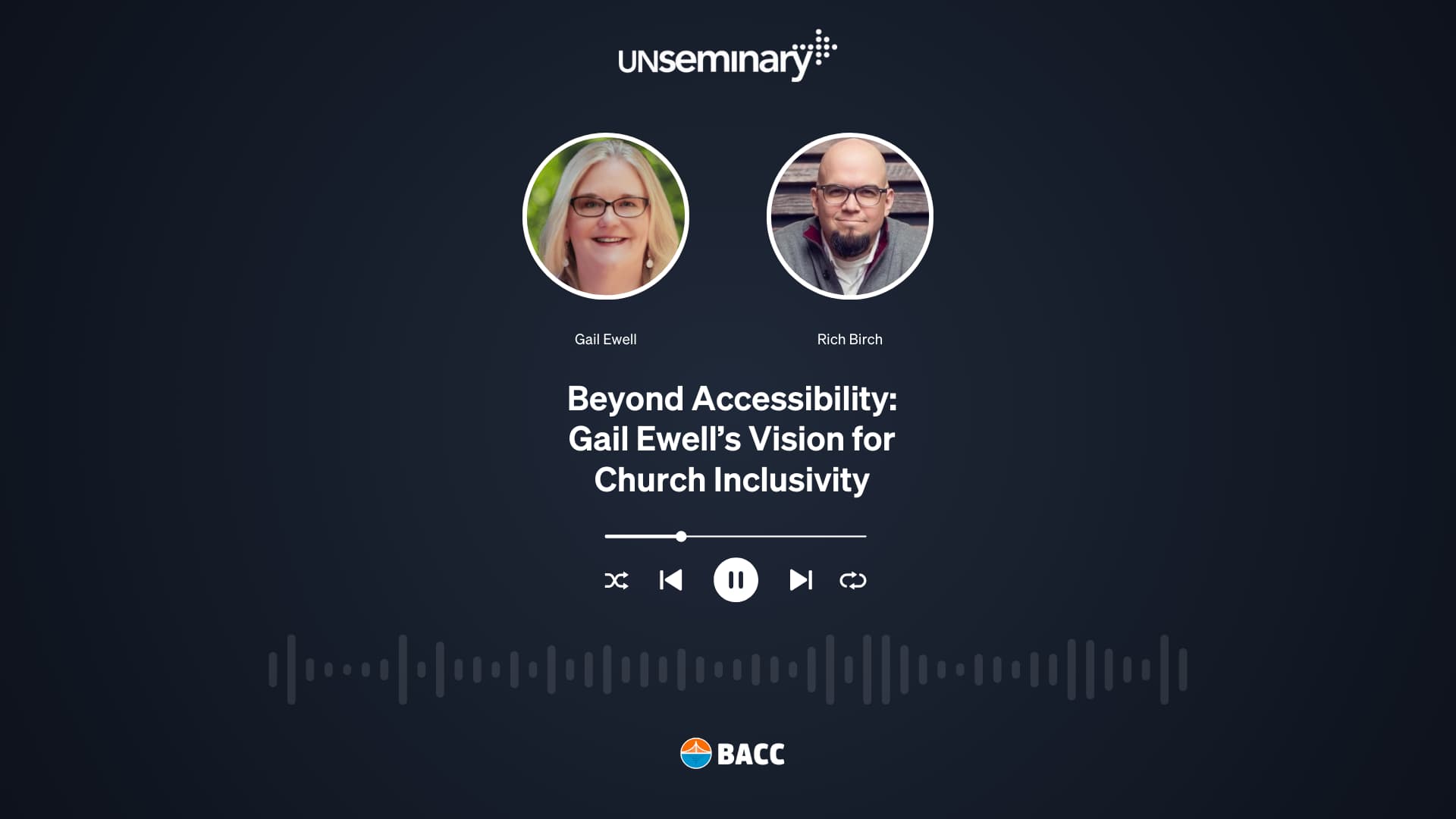Sign up for The Good Stuff
Our weekly newsletter filled with news, updates, and inspiring stories of how God is working in the Bay Area.
"*" indicates required fields
Sign up for The Good Stuff
Our weekly newsletter filled with news, updates, and inspiring stories of how God is working in the Bay Area.
"*" indicates required fields
I learned the art of pretending at a pretty young age. When I was in fourth grade, I decided I wanted to play the flute. I convinced my mom to support my newfound passion and eagerly brought home my shiny new instrument.
It was then I discovered a difficult truth: it is hard to play the flute. I tried and tried but I couldn’t get any sound to come out of it.
Realizing this new endeavor was much more arduous than I had anticipated, and not wanting to do the hard work of practicing, I came up with a new solution – to pretend to play the flute. Hidden amongst the orchestra, I figured no one would ever know I wasn’t actually playing.
And then the time came for our first concert. Concerned that my charade would crumble if my parents actually saw me play, I concocted a set of lies to cover my tracks.
“The concert was cancelled,” I told my mom.
“My parents have to work,” I told my orchestra.
Perfect, I thought. I had all my bases covered. The afternoon passed uneventfully, and I thought I just might be in the clear.
And then the phone rang.
“Oh?” I heard my mom remark surprisedly into the phone, “I thought the concert was cancelled…?”
Uh oh. I had forgotten about my mom’s extensive network of mom friends. I felt a pit in my stomach as I overheard her hanging up the phone and heading my way.
I braced myself. I expected repercussions. But instead, with just one simple question, she taught me an important lesson about lying and pretending.
“If you didn’t want to play,” she began, slightly puzzled, “why didn’t you just tell me?”
It was one of the first times I realized that the truth could be less stressful than a lie. Lying was how I protected myself. I thought my lies prevented conflict, exposure, rejection and a host of other negative experiences. But in reality they just created pressure and loneliness because I constantly had to pretend to be someone I wasn’t.
The life God wants for us is a life free from the pressure of pretending. Do you feel like it’s hard to be yourself? How easy is it for you to admit your failures, sins, and mistakes? Check out the scriptures below to learn how God can free you up to be yourself.
The freedom to be yourself
Then I confessed my sins to you and didn’t hide my guilt. I said, “I will confess my sins to the LORD,” and you forgave my guilt.
Psalm 32:5 NCV
There’s a special type of freedom that comes from being yourself. It’s why many of us like lounging at home in our favorite PJs; we feel most relaxed when we can be ourselves, with (hopefully) minimal fear of rejection or judgement.
This is the kind of freedom God wants us to experience all the time. He knows we aren’t perfect, and he doesn’t want us to pretend to be. He wants us to be real and to ask him for help dealing with the things we so desperately try to hide.
A friend of mine told me once that a good spiritual conversation is one in which you can share about guilt. This has always stuck with me, because guilt tends to be a topic I avoid. But the truth is we all have guilt, and God wants us to have the ability to talk about and be freed up from it, instead of dodging it.
What are the hardest things for you to be honest about? What guilt would you most like God to forgive and remove from you?
Pretending causes pressure
When I kept it all inside, my bones turned to powder, my words became daylong groans. [4] The pressure never let up; all the juices of my life dried up. [5] Then I let it all out; I said, “I’ll make a clean breast of my failures to GOD.” Suddenly the pressure was gone— my guilt dissolved, my sin disappeared.
Psalm 32:3-5 MSG
This scripture teaches that pressure comes from how we handle guilt and failure, not from our circumstances. I find that most of the pressure in my life is internally driven. I really don’t like admitting that; it is much easier to blame circumstances or other people in my life for the pressure I feel. But truthfully, I usually feel pressure because I am trying to impress people, trying to do a good job, trying to keep my real thoughts/feelings/sins inside, or trying to act like I’m someone I’m not.
What pressures do you feel in your life? How do you think these could be related to pretending?
How God feels about pretenders
For religious people, pretending can become a way of life. It’s easier to try to follow rules and to look good than it is to deal with your true thoughts, feelings, and doubts.
This is how Jesus described the Pharisees, notoriously religious people, in Matthew 23:
You Pharisees and teachers are in for trouble! You’re nothing but show-offs. You’re like tombs that have been whitewashed. On the outside they are beautiful, but inside they are full of bones and filth. [28] That’s what you are like. Outside you look good, but inside you are evil and only pretend to be good.
Matthew 23:27-28 CEV
Jesus spoke out strongly against religiosity and pretending. Do you feel the same way Jesus did about pretending and only dealing with the outside? I often don’t think it’s that bad to pretend. I tend to think I’m a good Christian as long as I’m doing the right outward actions and not doing any sins that are too crazy (whatever that means). But Jesus didn’t feel that way. Are you comfortable with letting evil reside in your heart as long as you try to act good on the outside?
Who are you pretending to be?
“When you pray, do not be like those who only pretend to be holy. They love to stand and pray in the synagogues and on the street corners. They want to be seen by other people. What I’m about to tell you is true. They have received their complete reward.
Matthew 6:5 NIrV
Do you pretend to be holy? Do you pretend to pray, when you don’t really believe God is even there? Do you pretend to be happy for others, when you are really full of jealousy and competitiveness? Do you pretend to trust God, when you really are consumed with fear? Do you pretend to care about other people, just to get them to like you?
I think one of the first ways to stop pretending is to accept this truth: the Bible says no one is truly good, so you can stop trying to act like you are.
“Why do you call me good?” Jesus asked. “Only God is truly good.”
Mark 10:18 NLT
When you accept that you will never be good, you’ll be free to admit the real sins in your heart and life that aren’t so good. Scriptures like Galatians 5:19-20, 2 Timothy 3:1-7 and Mark 7:20-21 are helpful lists for pretenders to read because they identify sins we may be trying to ignore or hide.
From Pretending to Purposeful
Admitting your sins to God and spiritual friends will change your focus. Instead of anxiously trying to look good, you can relax, accept God’s mercy, and try to help others experience freedom too.
This is the transformation we see in the apostle Paul, who went from a judgemental, rule-keeping Pharisee (Philippians 3:5-11) to one of the most passionate, loving, and impactful men in the Bible:
This is a trustworthy saying, and everyone should accept it: “Christ Jesus came into the world to save sinners”—and I am the worst of them all. [16] But God had mercy on me so that Christ Jesus could use me as a prime example of his great patience with even the worst sinners. Then others will realize that they, too, can believe in him and receive eternal life.
1 Timothy 1:15-16 NLT
Paul felt like the worst of all sinners, yet God worked through him to change thousands of lives. If you accept and admit who you really are, God can work through you too!
To learn more about how to stop pretending and live out the purpose God has for you, come to our Expo on August 17-19, titled “Purpose”!

Written by
Amy Query
Amy Query is an editor of BACC Inspire and avid reader. She studied psychology at the University of California, Berkeley, and has over a decade of experience in mentoring, counseling and community organizing.
How the simple step of a church extending friendship can transform a community.
Mother’s Day gives us the chance to celebrate the moms, mothers-to-be, and maternal figures in our lives
God’s desire is that Jesus lives in all of us, which is why we are passionate advocates for inclusion in the church.


